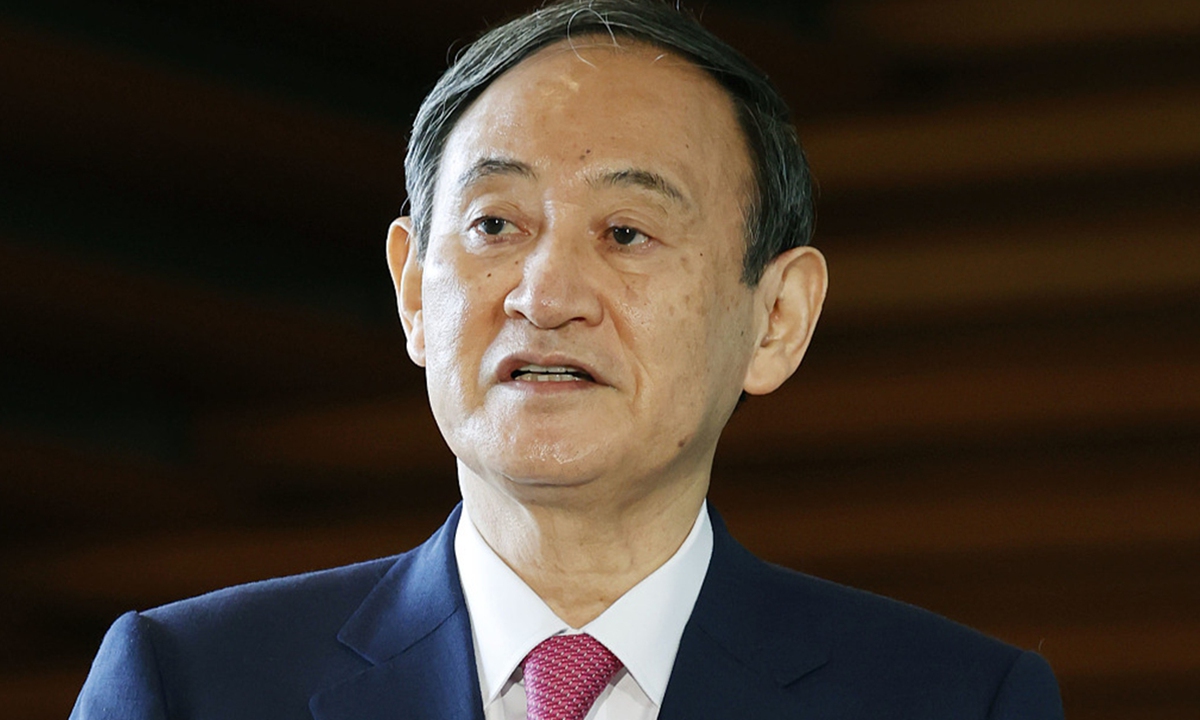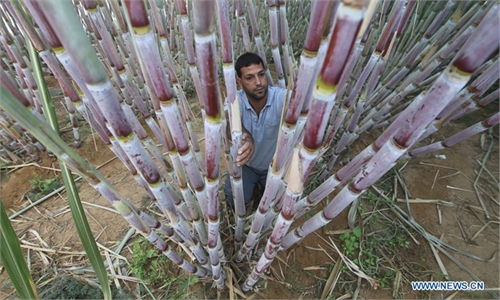Japan playing Taiwan card grossly obvious

Japanese Prime Minister Suga Yoshihide Photo:VCG
Japanese Prime Minister Yoshihide Suga on Tuesday met with Admiral John Aquilino, the new commander of the US Indo-Pacific Command. The two sides agreed to strengthen the US-Japan security alliance, according to Kyodo News.And again, the two sides brought up the island of Taiwan. Aquilino also held talks with Japanese Defense Minister Nobuo Kishi and affirmed the importance of peace and stability across the Taiwan Straits.
In April, Washington and Tokyo for the first time in half a century mentioned China's Taiwan in a joint statement by Suga and US President Joe Biden.
Tokyo recently used the Taiwan question to create obstacles in China-Japan relations. It is obvious that Tokyo is trying to use the island to contain the Chinese mainland.
Some analysts believe that Washington and Tokyo mentioned the Taiwan question again to strategically deter the Chinese mainland's possible moves to realize reunification by force. Former deputy national security adviser Matt Pottinger said on Tuesday that Japan would step up militarily to defend Taiwan if Beijing moved to reunify the island with mainland by force.
In the scenario of a war in the Taiwan Straits, Washington will be involved. As for Japan, reaching out to protect the island of Taiwan cannot be viewed as a real option, because Tokyo will not do it proactively. But since Japan is a military ally of the US, it could be forced into a cross-Straits military clash due to its alliance with Washington.
With certain current legal restrictions in Japan, it is unlikely that decision makers in Tokyo will directly send troops or interfere if military conflicts break out across the Taiwan Straits. However, the US has military bases in Japan, and Japan can provide some logistical support to the US military. It is possible that Japan will be more active in these basic tasks. But if Tokyo chooses to be directly involved should an armed conflict erupt, then it will definitely suffer a blow from China. After all, China can strike US military bases in Japan.
Suga and Aquilino also affirmed their "strong opposition to China's unilateral attempts to alter the status quo in the Indo-Pacific region," according to Kyodo News. However, it is Japan and the US that have tried to "alter the status quo." On issues including the Diaoyu Islands and South China Sea, China is trying to maintain the status quo. Japan has always portrayed itself as a victim on the Diaoyu Islands issue. But many of its acts are proactive and offensive such as its so-called "nationalization" of the islands.
Japan used to strike a delicate balance between the US and China and China-Japan relations were brought back on the right track of gradual recovery.
But now, Tokyo has changed its path and joined Washington's strategy to contain China. It is targeting Beijing on issues such as the Taiwan Straits and human rights. After Biden took office, he has focused on multilateral mechanisms and attached importance to the role of allies. Thus Japan's role has been highlighted. Although Japan may have economic dependence on China, it is very vigilant against China on military or security issues. This coincides with the US' China containment strategy.
In addition to following Washington, Tokyo has also made some active adjustments. It is generally believed that Suga has inherited policies from former prime minister Shinzo Abe, but Suga has also made some changes considering demands from Japan's domestic politics. For example, some factions within the Japanese Liberal Democratic Party (LDP) have hyped up Xinjiang, Taiwan, Hong Kong and human rights issues. As president of the LDP, Suga has to take such an anti-China public opinion trend into account.
The author is an associate research fellow at the Center for Japanese Studies, Fudan University. opinion@globaltimes.com.cn



